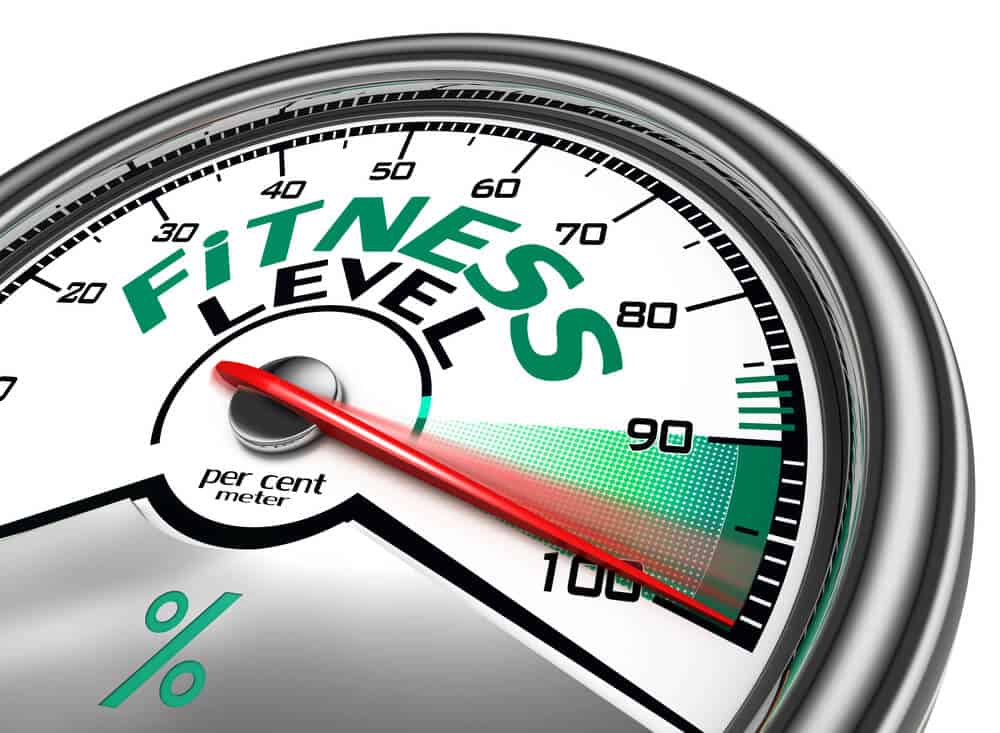No matter how many 5K, 10K, or even full-blown marathons you’ve run, knowing how to prepare for a half marathon in 8 weeks requires skill. You must include running training, strength training, other various exercises, and even fulfilling rest days in your schedule.
But how to find that balance and make sure your body is ready to handle running for 13.1 miles by the end of 8 weeks?
Well, we’re here to help you sort out your time and give you tips on how to make the most out of the last two months before your race. Ready to dive in?
Step 1: Make Sure You Have the Right Fitness Level

You can do anything, that’s for sure, but only if it makes sense, right?
With that in mind, you can’t expect a beginner who’s only recently managed to run for 30 minutes with no pause to participate in a 10K, let alone a half marathon.
Even if that person has two months to get ready, they must have a certain fitness level to begin that 8-week training with in the first place.
So, who has a suitable physique to follow our 8-week half marathon training plan with no trouble?
Skilled runners who have participated in several 5K and 10K races are the best candidates for this training program. It doesn’t matter if this is your first half-marathon, but it shouldn’t be your first-ever racing event.
Now that you know whether or not you can get ready for the 13.1-mile race in two months, let’s move forward from there!
Step 2: Prepare Your Half Marathon Running Gear

One rule that all marathon runners follow is that any clothes or running shoes you intend to wear on the race day must be already broken. In other words, you can’t just show up on the day of the half marathon with brand new shoes!
You’ll want your feet and body to get comfortable with your gear, so it’s best to buy a new pair of running shoes before you begin training. During your everyday runs, make sure to run in these shoes until you’ve worn them out just enough to match your desired level of comfort.
As for your clothes choice, it has to be something that isn’t too loose not to flap with the wind. During your first half marathon, nothing should push you back!
Step 3: Get Yourself Mentally Ready for the Challenge

A half-marathon run isn’t a walk in the park. The race itself is pretty long, not to mention that the training requires discipline, consistency, and persistence to get the desired results.
Therefore, it’s important that you have the right mindset to keep your motivation and passion as high as a skyscraper.
If not, first-time marathon runners might experience boredom. Of course, this can lead to skipping training days and affecting the overall weekly mileage.
No one wants that!
Luckily, there are mental tricks you can do to push yourself to do better and improve your general mood during practice.
- Start small and gradually build your endurance and increase your mileage week after week
- Run with a group of experienced runners that have the same goals as you
- Repeat daily positive affirmations to boost your confidence
- Change your running routes regularly
- Play your favorite music, podcasts, or audiobooks during training to keep from getting bored
- Spice up your routine by including interval training or strength training, various running technique drills, yoga, or even dancing
Step 4: Follow an 8-Week Training Plan
Now that you’ve made the necessary arrangements, it’s time to put together a nice training plan for the two upcoming months. Grab a piece of paper and a pen or your planner app and start writing our half marathon training schedule!
Week 1
| Day 1 | ● Run for 3.5 miles at a relaxed yet continuous pace
● Take 3-minute jogging breaks |
| Day 2 | Rest or do 30-45 minutes of strength-training exercises |
| Day 3 | ● Do a tempo run for 3 miles (start at a relaxed pace, then increase your speed gradually until you run at your target race pace)
● Take jogging breaks at 1-mile intervals to recover (each break should last for 2-3 minutes) |
| Day 4 | Rest or include 30 minutes of yoga or any form of cross training |
| Day 5 | Run for 4 miles at an easy pace |
| Day 6 | ● Do a tempo run for 4.5 miles
● Take jogging breaks as a recovery |
| Day 7 | Rest |
Week 2
| Day 1 | ● Run for 4 miles at an easy pace
● Remember to take 3-minute jogging breaks |
| Day 2 | Rest or do 30-45 minutes of strength-training exercises |
| Day 3 | ● Speed run for 5 miles
● Take jogging breaks |
| Day 4 | Rest or include 30-45 minutes of cross training |
| Day 5 | Run for 3.5 miles at an easy pace |
| Day 6 | ● Do a speed run for 6 miles
● Take jogging breaks |
| Day 7 | Rest |
Week 3
| Day 1 | ● Run for 4 miles at an easy pace
● Remember to take 3-minute jogging breaks |
| Day 2 | Rest or do 60 minutes of strength training |
| Day 3 | Do uphill running and go back down 8 times |
| Day 4 | Rest or include 50 minutes of cross training |
| Day 5 | Run for 5 miles at a conversational pace |
| Day 6 | ● Do a speed run for 8 miles
● Take jogging breaks for 2-3 minutes |
| Day 7 | Rest |
Week 4
| Day 1 | ● Run for 5 miles at an easy pace
● Take 3-minute jogging or walking breaks between each mile and the next one |
| Day 2 | Rest or do 60 minutes of strength-training exercises |
| Day 3 | ● Speed run for 7 miles
● Make sure to take jogging breaks to recover |
| Day 4 | Rest or include 50 minutes of cross training |
| Day 5 | Run for 5 miles at an easy pace |
| Day 6 | ● Do a speed run for 10 miles
● Take jogging or speed walking breaks for 2-3 minutes |
| Day 7 | Rest |
Week 5
| Day 1 | ● Run for 4 miles at an easy pace as a warm-up
● Remember to take 3-minute jogging breaks |
| Day 2 | Rest or do 60 minutes of strength-training workouts |
| Day 3 | Do uphill runs and run back down 6-8 times |
| Day 4 | Rest or include 60 minutes of cross training |
| Day 5 | Run for 5 miles at an easy pace |
| Day 6 | ● Do a speed run for 12 miles (starting next week, you’ll have to reduce your mileage in preparation for the big race!)
● Make sure to take jogging breaks between miles |
| Day 7 | Rest |
Week 6
| Day 1 | ● Run for 5 miles at a relaxed pace as a warm-up
● Remember to take jogging breaks |
| Day 2 | Rest or do 60 minutes of strength-training workouts |
| Day 3 | ● Do an 8-mile speed run
● Take breaks at 1-mile intervals to recover (speed-walk or jog) |
| Day 4 | Rest or include 60 minutes of cross training |
| Day 5 | Run for 4 miles at an easy pace |
| Day 6 | ● Do a speed run for 10 miles
● Make sure to take breaks between miles |
| Day 7 | Rest |
Week 7
| Day 1 | ● Run for 5 miles at an easy pace as a warm-up
● Remember to take 3-minute breaks |
| Day 2 | Rest or do 30 minutes of strength training |
| Day 3 | Do a 4-mile slow run |
| Day 4 | Rest or do 30 minutes of cross training |
| Day 5 | Run for 4.5 miles at an easy pace as a warm-up |
| Day 6 | ● Do a speed run for 8 miles
● Make sure to take jogging breaks between miles |
| Day 7 | Rest |
Week 8
| Day 1 | ● Run for 6 miles at an easy pace as a warm-up
● Remember to take 3-minute jogging breaks |
| Day 2 | Do 30 minutes of strength-training workouts |
| Day 3 | Take the day to rest your body completely |
| Day 4 | Run for 4 miles at a conversational pace |
| Day 5 | Rest |
| Day 6 | Only run for 3 miles as a warm-up |
| Day 7 | Run the half marathon! |
Step 5: Make Preparations for the Race Day
You now know exactly how to spend the following 8 weeks and are ready to get to work. But is there anything special you should do as the day of the race is approaching?
Well, the following tips should have your back!
1. Rest Well Before the Race Day
As you’ve noticed, the final week of training before the half marathon is a little less intense than the previous 7 weeks. This is because your body will need to preserve as much energy as it can while still being active.
When it’s almost time for race day, make sure to keep the same sleeping patterns as the ones you’ve had the past few weeks. Don’t make sudden changes to your sleep not to affect your daily energy levels.
No one wants to meet the starting line with a yawn, right?
Plus, for the day before the race, your 3-mile warm-up should be just what it is, a warm-up. Don’t push yourself too hard or run too fast. Instead, keep your pace easy and your body relaxed in preparation for the next day’s challenge.
Last but not least, it’s important to get your 8 hours of sleep before you wake up the morning of the half marathon. Don’t underestimate the power of a well-rested body!
2. Eat Well and Stay Hydrated
This goes during training, on the day before the race, and during the half marathon itself. Proper nutrition and a generous amount of water will surely keep you going through it all.
As a general rule, carbohydrates and proteins should make up the most of your diet. Vitamins and minerals are also essential for a balanced and healthy diet.
Lastly, getting enough water during practice and while running the marathon is a no-brainer for a runner. Being always hydrated has many benefits during physical activity, such as:
- Regulates your body temperature
- Efficiently transports nutrients throughout your body to keep your energy high
- Works to lubricate your joints
- Helps you avoid dehydration, which can lead to fatigue and dizziness
- Prevents cramps by ensuring more oxygen gets to your exercised muscles
Because food and water are the fuel you’ll need to keep running, it’s also important to make sure you have enough of those during your half-marathon run. Simply, visit the race’s website to see the types of snacks and sports drinks that will be available at the event.
Then, try these products yourself during your training to see if they will work out just fine with your body. If they don’t for some reason, you’ll have to pack your own drinks and snacks on the race day.
The same goes for your water supply. Look up how frequent water stops will be spread out over the route that the half marathon will take.
If you’ll require more water during the 13.1-mile run, it’s a good idea to bring your water along!
3. Take Some Time to Relax on the Day Before the Race
One final piece of advice: give your body and mind the chance to completely chill out on the day before the race. After your 3-mile warm-up run, go home and unwind to reduce anxiety and soothe your nerves.
Here are a few suggestions:
- Read a book, listen to some jazz, or watch your favorite Netflix show
- Spend some time on the internet to keep your mind off the upcoming challenge
- Have a nice conversation with your best friend, spouse, family member, or dog!
- Take a relaxing bath
- Pack your backpack and prepare your running shoes and clothes to get yourself mentally ready for tomorrow
Final Thoughts On How to Prepare for a Half Marathon in 8 Weeks
No matter how many times you’ve run half marathons or even full marathons, it always takes you some time to figure out how to create the perfect training plan for the racing event. Hopefully, after reading our guide, it should be a breeze this time!
How to prepare for a half marathon in 8 weeks? Just make sure your body is ready, stay consistent with your practice, build your mileage week after week, and slow things down before the day of the race. Don’t forget to wear the right shoes and get plenty of water and rest!
